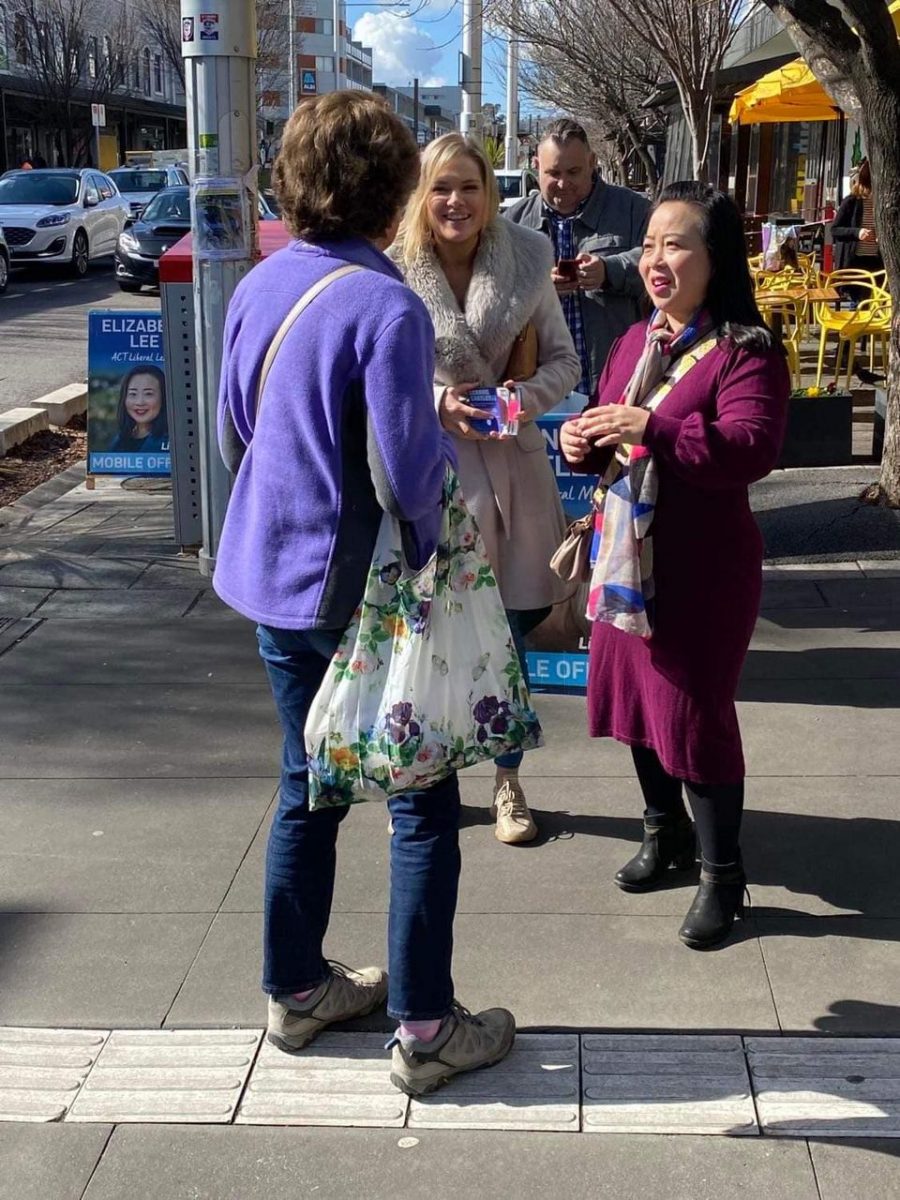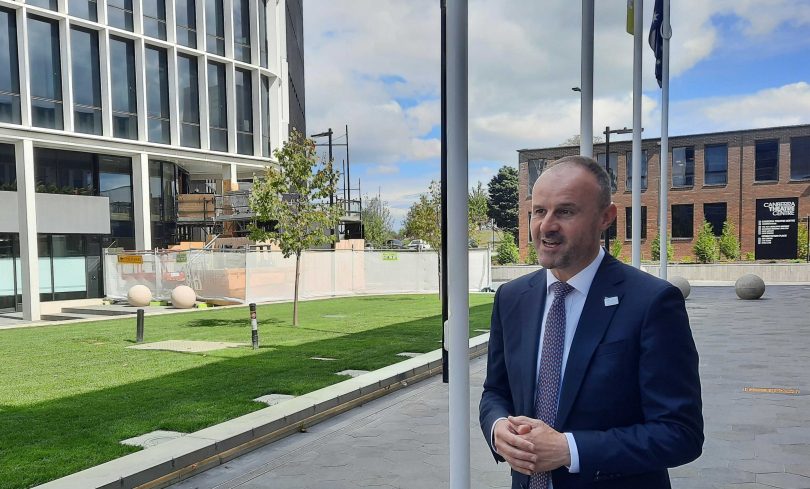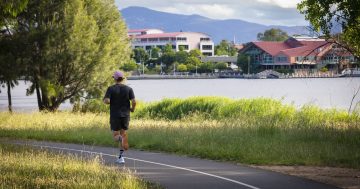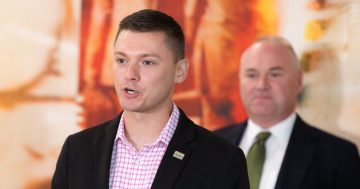
ACT Greens MLA Johnathan Davis has written to Special Minister of State Chris Steel about electorate offices for ACT politicians. Photo: Johnathan Davis MLA.
Could you name the members of the ACT Legislative Assembly in your electorate?
When was the last time you spoke to them? And if you could speak to them more often, what would you ask?
Unlike their federal counterparts, the Territory’s local politicians don’t enjoy the luxury of their own electorate offices.
But that’s something ACT Greens Member for Brindabella Johnathan Davis would like to see changed.
In the lead-up to the 2020 ACT election, the now-MLA made an election promise to be the first ACT politician to open an electorate office.
It’s true politicians of all colours – blue, red and green – have “mobile” offices where they meet constituents at shopping centres, cafes and in parks.

Canberra Liberals Elizabeth Lee and Leanne Castley meet with the public. Photo: Leanne Castley MLA.
Mr Davis’ “office” is in Jindebah Coffee in Tuggeranong.
And while it might not have his face plastered on the outside in the traditional sense of the word, it works.
Every Friday, he sets himself up there from 9 am to midday to hear from his constituents about everything from Budget questions to why estimates aren’t going ahead and everything in between.
He deals a lot with what many would describe as “local council business”. It may include broken streetlights or dangerous footpaths.
Mr Davis, who has now racked up more than 250 hours of time in his “office”, is now calling on the government to establish appropriate, permanent spaces for electorate offices within each of the electorates.
“Over the last 250 hours, I’ve learned a lot about my community,” Mr Davis wrote to Special Minister of State Chris Steel.
“What I have learned has informed my work in the ACT Legislative Assembly. I believe all MLAs would benefit from reliable and consistent availability by their respective constituencies.”
The Greens MLA said he wasn’t necessarily asking for expensive permanent shopfronts to be set up which would come at a cost to the taxpayer.
Instead, he’d be open to options such as using Access Canberra service centres or public libraries.
“I’m asking the government to consult with the broader community to identify how MLAs can best demonstrate real and genuine consultative representation to their respective constituencies,” he said.
“The key issue for me is the community knowing with a degree of reliability and consistency where their MLAs will be so they can come and raise issues.”

Chief Minister Andrew Barr says leasing a space for five MLAs to use will cost between $60,000 and $140,000 a year for rental alone. Photo: Ian Bushnell.
But the idea has largely been rejected – at least for this parliamentary term – by Chief Minister Andrew Barr who responded to Mr Davis to say it had been looked at before.
“In a small ‘city-state’ jurisdiction like the ACT, represented by 25 MLAs across five electorates all within manageable travel distance of the Legislative Assembly building, the additional costs associated with electorate offices has been difficult to justify,” he wrote in response.
“Once such offices come under ACT Government responsibility, a range of factors such as commercial leasing arrangements, refitting, WHS compliance, staffing and security arrangements will lead to rapidly escalating costs.”
Mr Barr said a conservative cost estimate for a space five MLAs could use came back at anywhere between $60,000 and $140,000 a year for rental alone.
But he agreed with Mr Davis that community consultation on ways MLAs could best represent them would be worthwhile.





















Why is everyone surprised? From health data manipulation, nepotism, morale issues, and budgeting… View